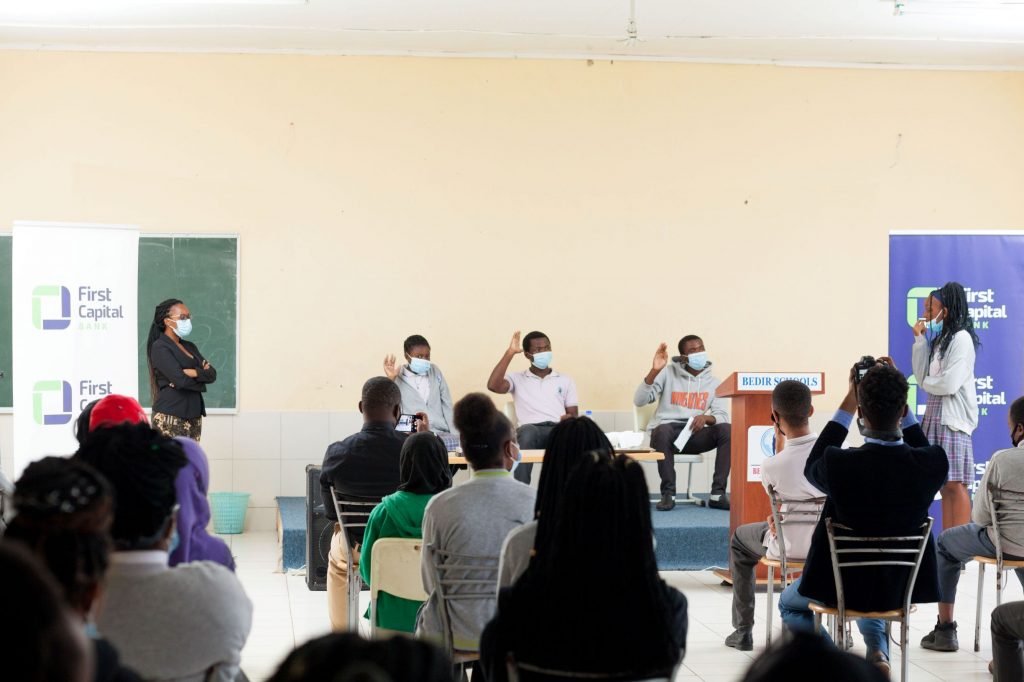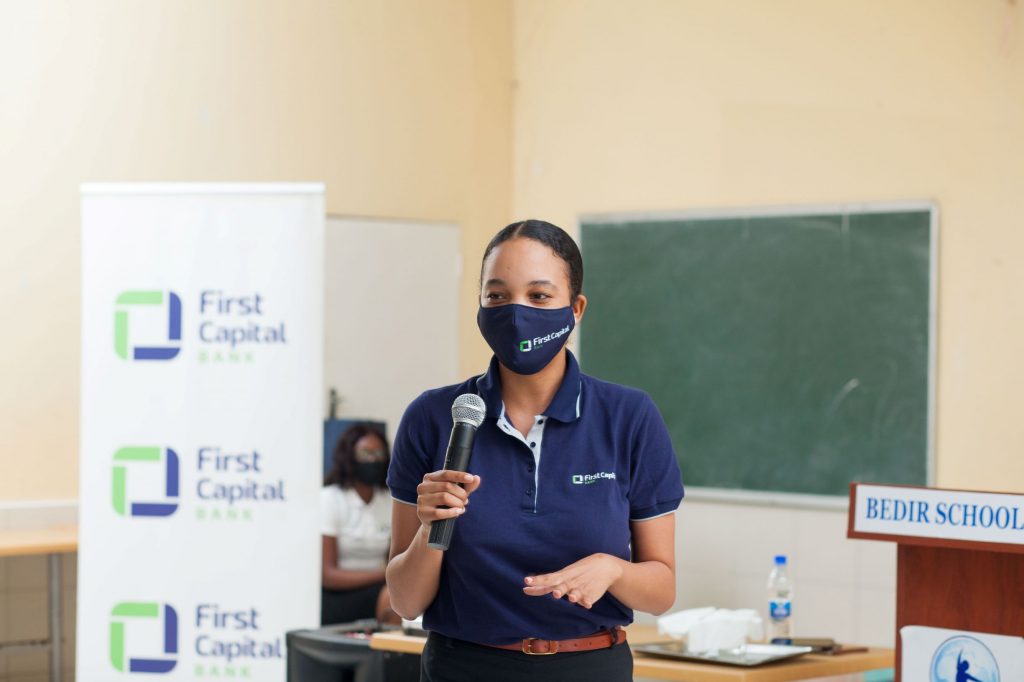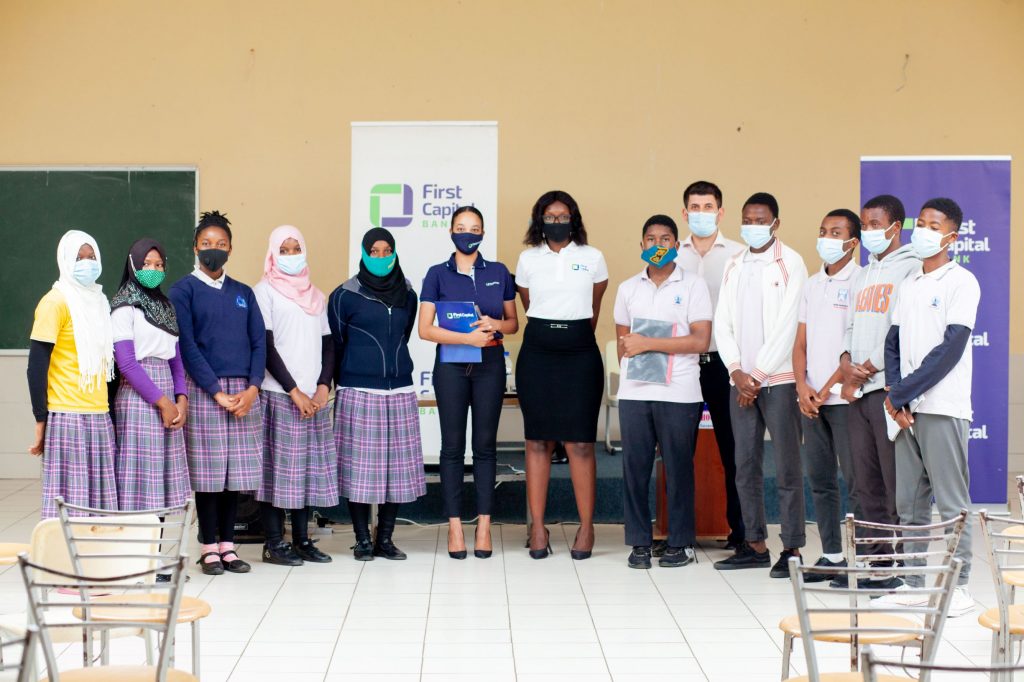
First Capital Bank (FCB) commemorated this year’s Global Money Week with a digital campaign sensitizing communities, especially young people, on how money affects livelihoods now and across future generations.
The campaign included an interface with students at Bedir International Schools in Blantyre where bank officials imparted money knowledge and responded to random questions on the issue.
Bedir Trust Executive Thokozani Mbewe expressed gratitude at the banks initiative saying it was insightful and exciting.
“We are grateful as a school for the financial literacy initiative conducted by First Capital Bank. The seminar was insightful and very exciting, we look forward to hosting the bank again,” said Mbewe.
This year’s Global Money Week was observed from 22-28 March under the theme ‘Take Care of Yourself, Take Care of Your Money’.
First Capital Bank Products Executive, Jodie Chikowi said the country can only be assured of inter-generational robust finance systems and sustainable development if deliberate steps are taken today to impart money knowledge to the young ones.

“As a financial institution we believe that a good harvest is a result of timely sowing. In this regard, if we want to attain generations of financially literate people then we must impart knowledge about money on the young ones. It is through these efforts that we can build financially literate communities,” she said.
Chikowi added that early financial education also go hand in hand with the spirit of entrepreneurship.
“Children who learn about finances at a tender age grow with relevant knowledge to start and grow successful businesses in future. This is so because money becomes part of their mental and behavioral fabric as such it does not come as a distraction later in their lives,” explained Chikowi.
Global Money Week is a global money awareness initiative that takes place every March. It is coordinated by the Child and Youth Finance International (CYFI) to raise awareness on Economic Citizenship and directly engage children, youth and their communities in financial education and financial inclusion.
Since its inception in 2012, the campaign has reached over 40 million children and youth in 175 countries worldwide.


